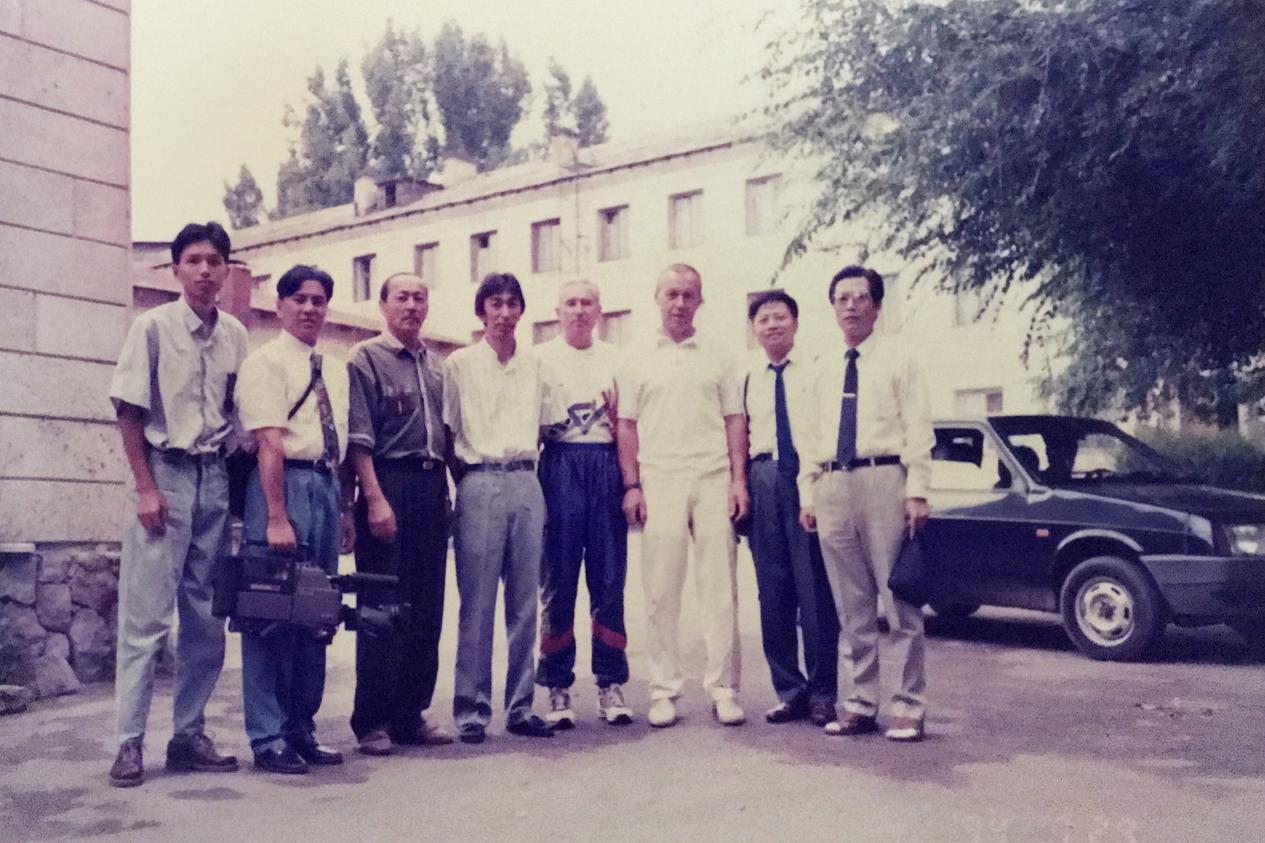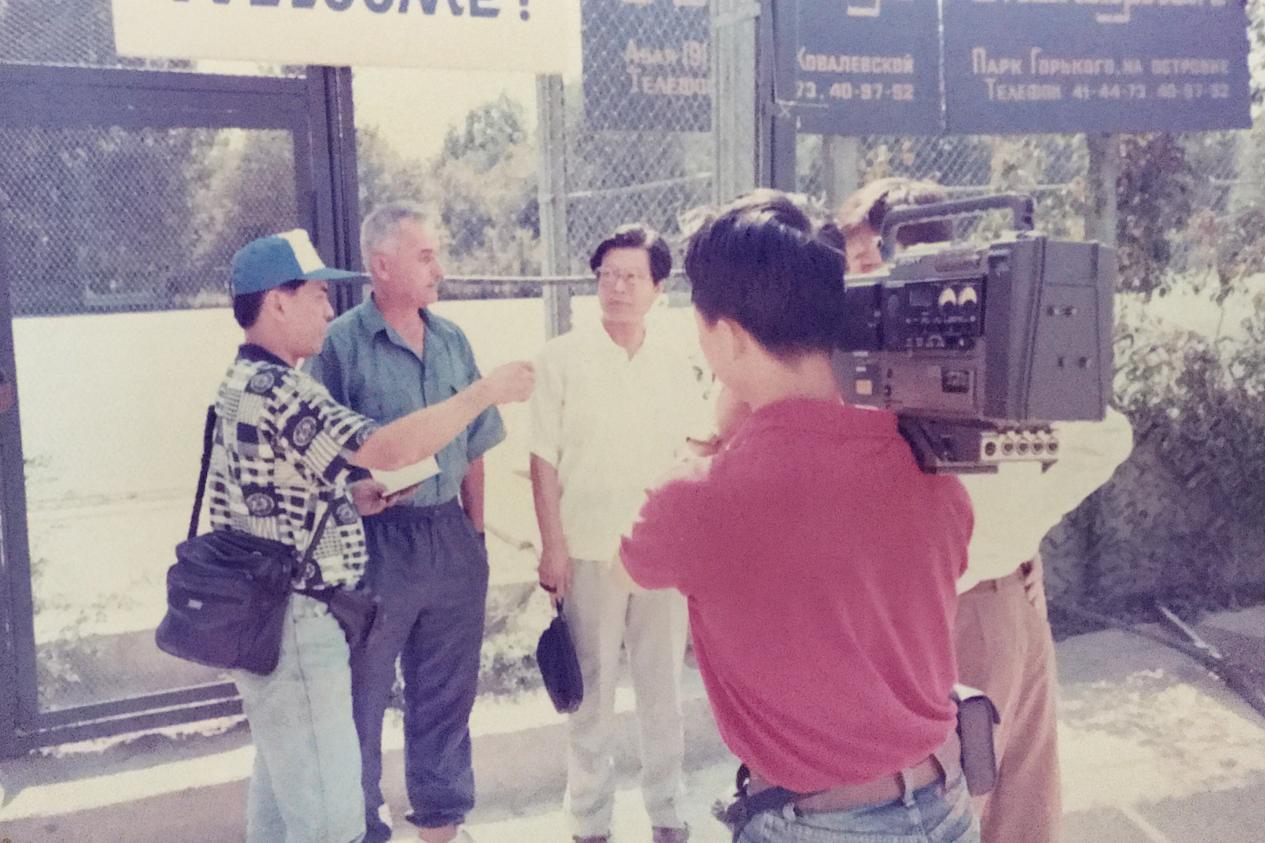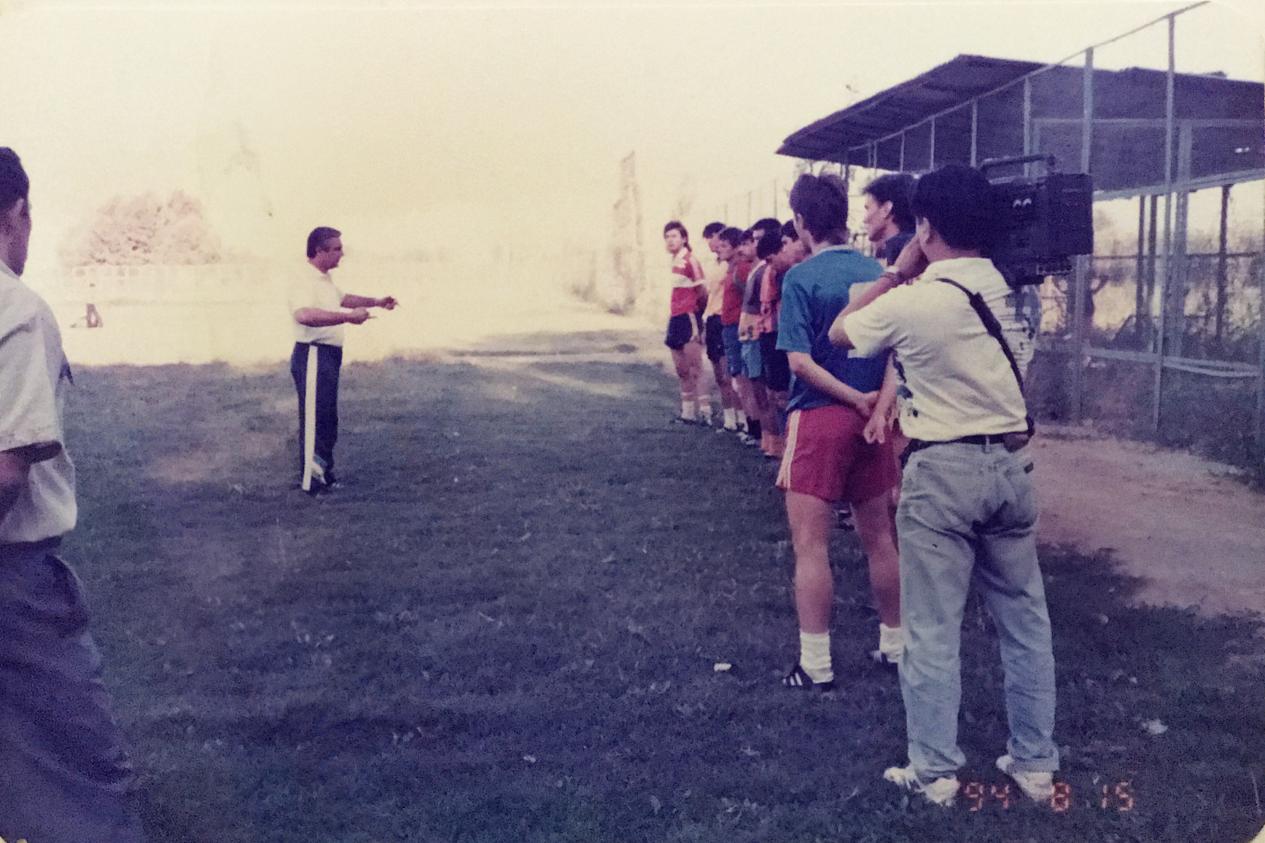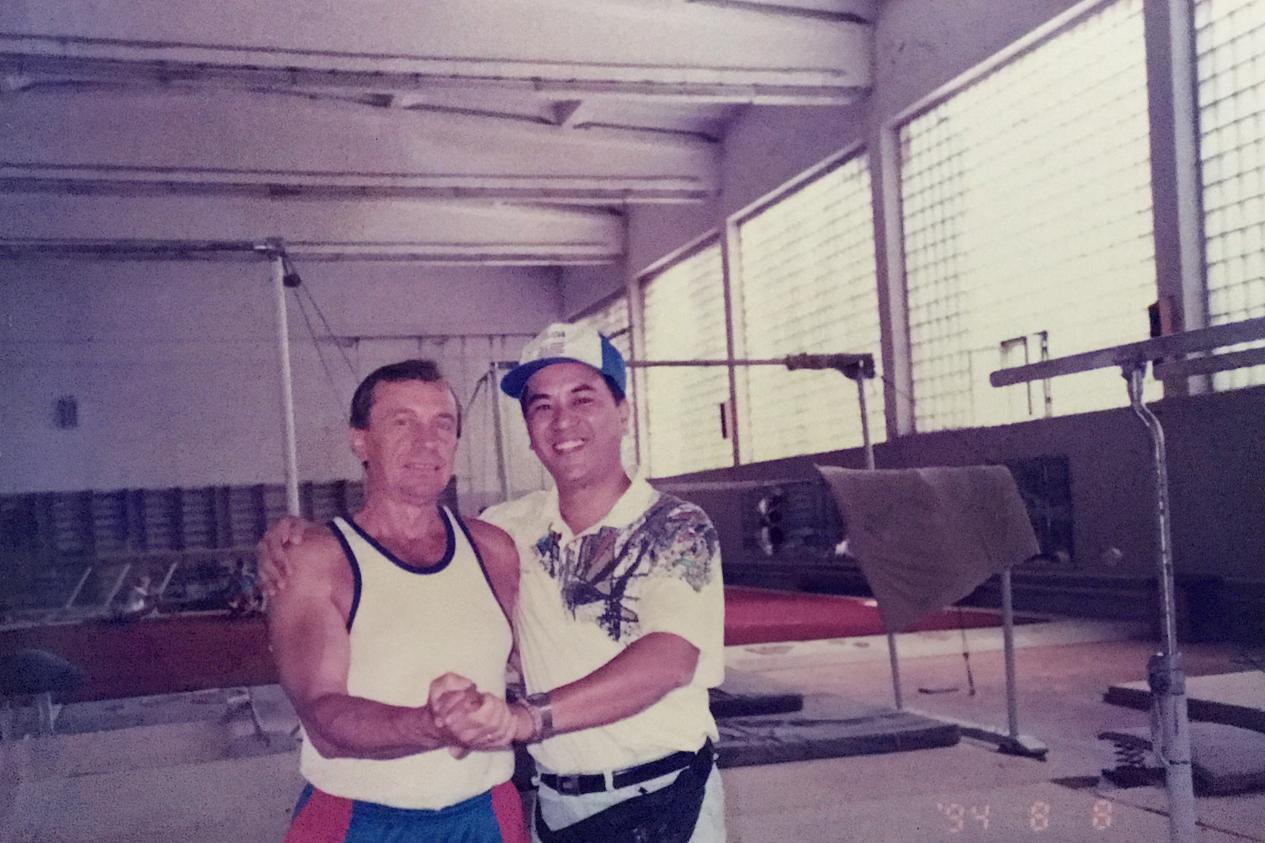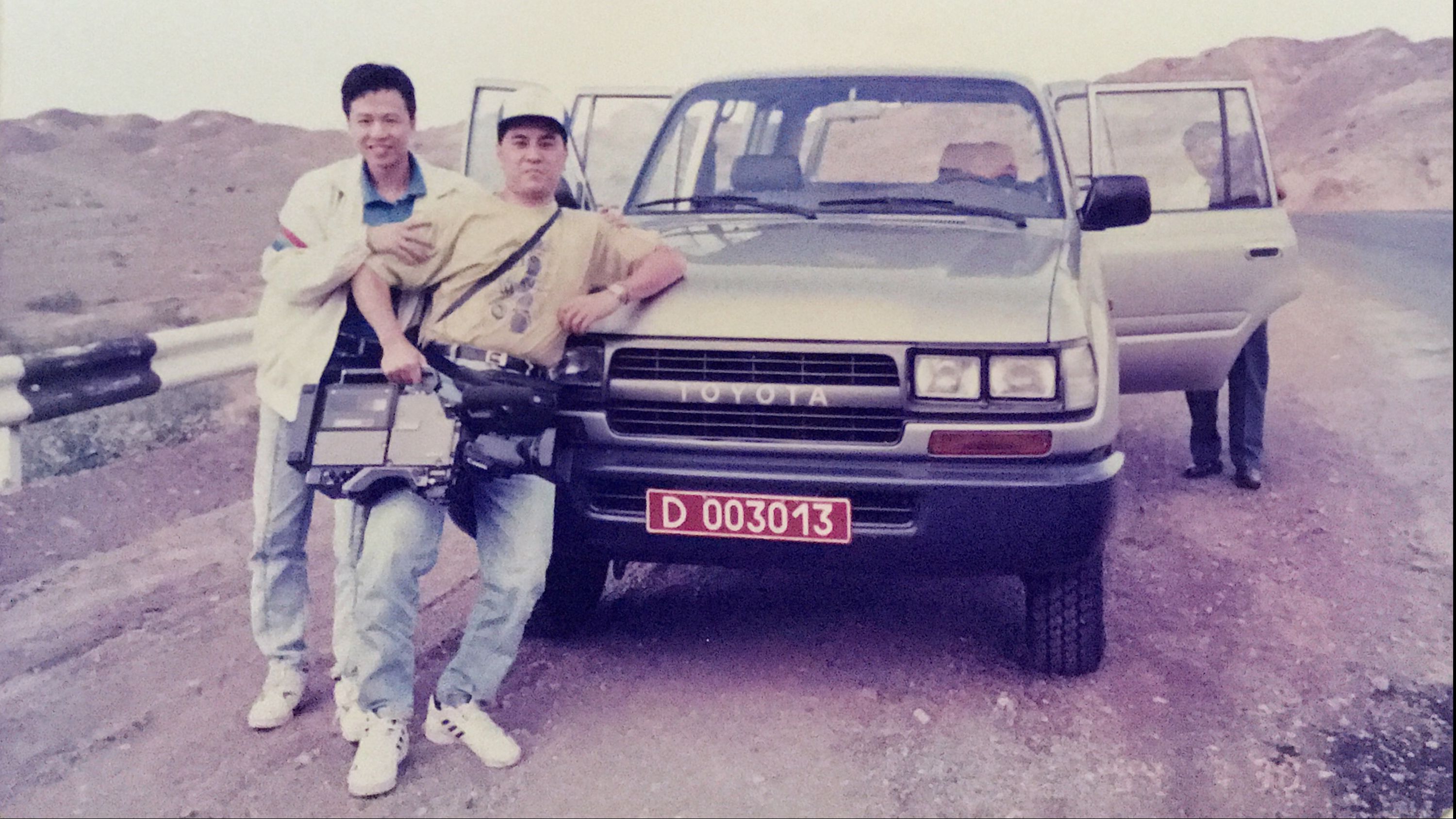The Asian Games is the largest comprehensive sports event in Asia, hosted alternately by member countries of the Asian Olympic Council, held every four years. This Asian Games marks the first participation of the five Central Asian countries—Kazakhstan, Uzbekistan, Turkmenistan, Kyrgyzstan, and Tajikistan—since gaining independence from the former Soviet Union.
Before the 1994 Hiroshima Asian Games, in order to introduce the sports development status and preparations for the Asian Games in the four Central Asian countries to television viewers, the Sports Department of Guangdong Television Station sent a film crew to interview at the sports training bases in the four Central Asian countries. I participated as one of the reporters and cameramen in this month-long arduous work.
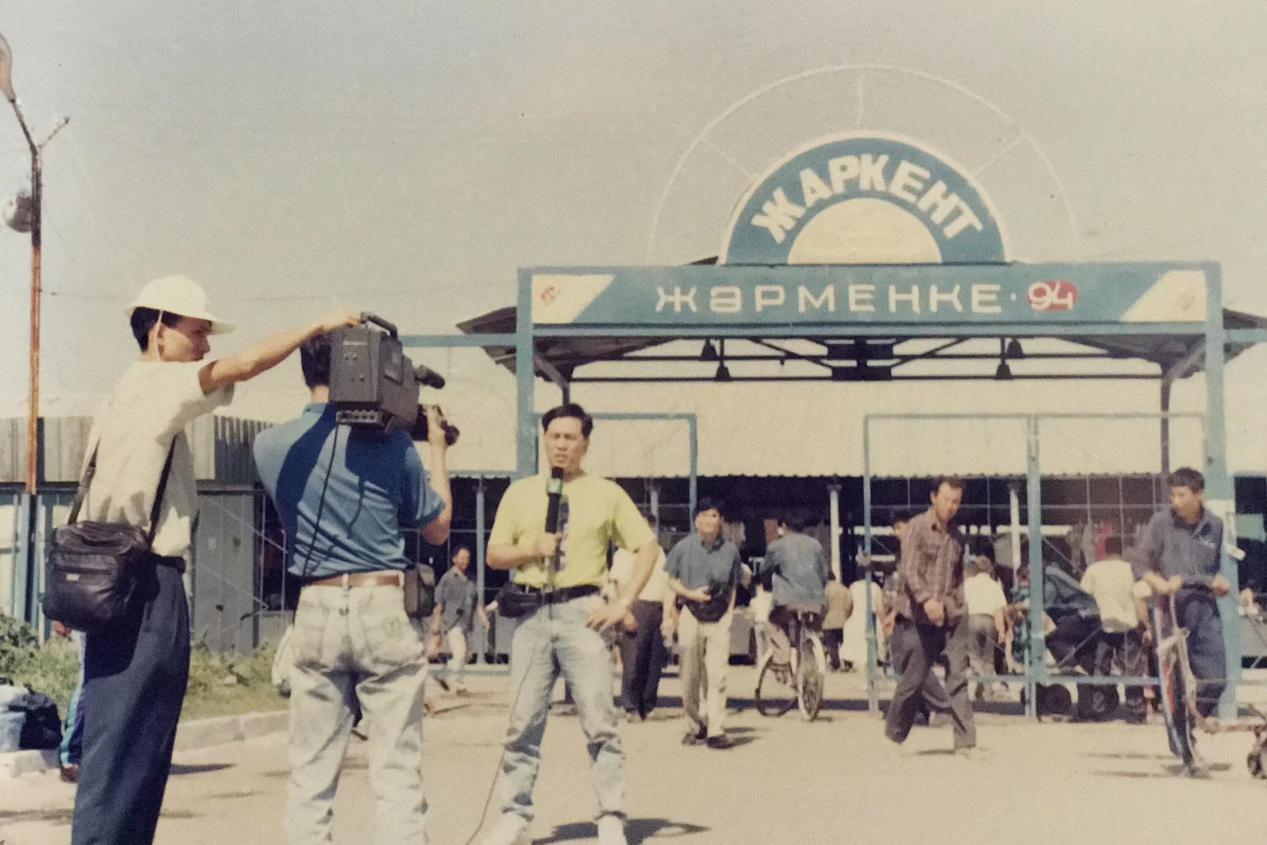
The interview team consisted of Huang Hehai and Zheng Songsheng from the Sports Department of Guangdong Television Station, myself, technician Liu Yisong, and Russian translator Huang Dongsheng.
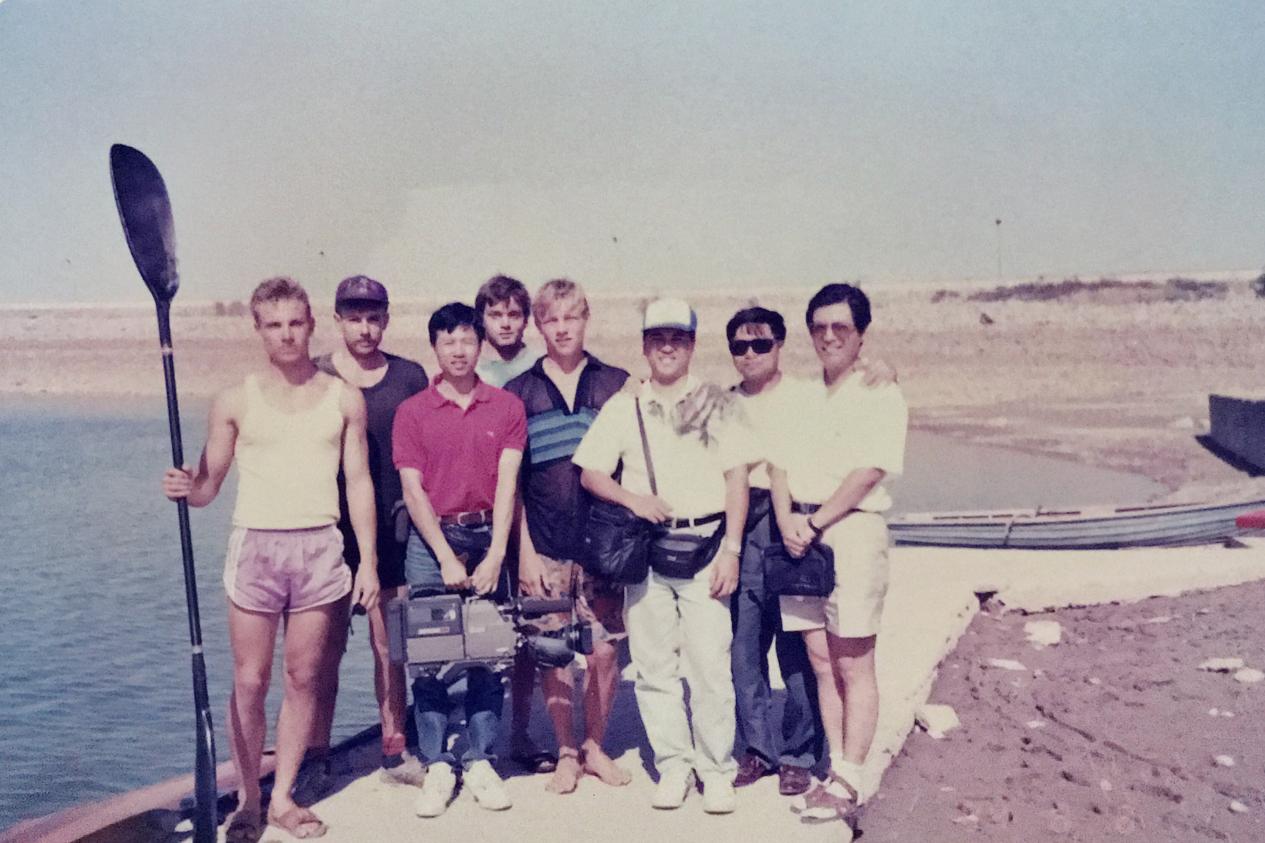
Our first stop will be the Republic of Kazakhstan (abbreviated as Kazakhstan). The name of Kazakhstan comes from its main ethnic group, the Kazakhs.
Kazakhstan is a landlocked country located in Central Asia, covering an area of 2.7249 million square kilometers, accounting for about 2% of the Earth's land surface. Its territory spans both Europe and Asia, making it the largest landlocked country in the world. Kazakhstan borders Russia to the north, Uzbekistan, Turkmenistan, and Kyrgyzstan to the south, the Caspian Sea to the west, and China to the east.
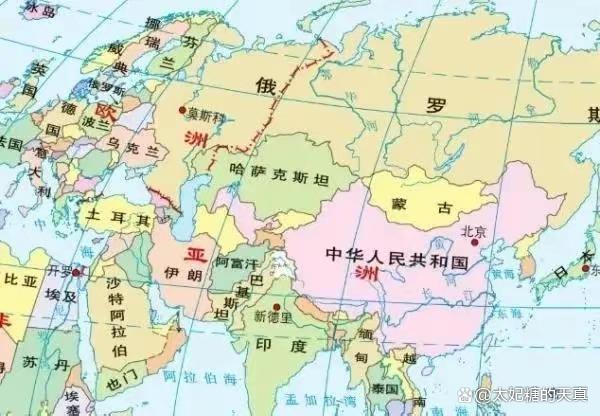
Kazakhstan was originally a member of the Soviet Union's republics. On October 25, 1990, it issued a declaration of sovereignty. On December 10, 1991, it was renamed the Republic of Kazakhstan. On December 16, 1991, the Republic of Kazakhstan declared independence. Kazakhstan has about 140 ethnic groups, with Kazakhs making up about 70% and Russians about 18%. Kazakh is the national language, and the official languages are Kazakh and Russian. The currency is called the tenge.
Our group arrived in Urumqi City on a Boeing 757 from Xinjiang Airlines, and none of us in the interview team had any visas for the country we were interviewing.
Why did we travel this way?
Because at that time, the five Central Asian countries had a visa-free entry policy for personnel holding official passports from China. We believed that holding an official passport and the original invitation letter from the Chinese embassy should allow us to conduct interviews in these countries.
Why is the title of this article "Breaking into" Kazakhstan?
First, we need to "break" through the border.
Our group was preparing to take a Tu-154 from Xinjiang Airlines from Urumqi to what was then the capital of Kazakhstan, Almaty. However, at the airport border inspection, we were stopped by the border inspection personnel. The reason was simple: we did not have a visa for Kazakhstan and could not exit the country. We were all stunned and hurriedly pointed out to the border inspection personnel that we were all personnel eligible for visa-free entry into Kazakhstan and did not need a visa, and we had the invitation letter from the Chinese embassy. The border inspection personnel insisted that we needed a visa to exit.
What to do? What to do?
I had a sudden idea and called the first secretary of the Chinese embassy in Kazakhstan, asking him to confirm that the Chinese embassy had invited us to Kazakhstan for interviews and to guarantee our safety in Kazakhstan.
The border inspection personnel said, "We will consult with our superiors."
The flight from Urumqi to Almaty was about to take off, and the superior's instructions came down.
"We can let you exit, but if Kazakhstan does not allow you to enter upon arrival in Almaty, you will be responsible for it."
"Okay!"
We finally boarded the plane to Almaty.
More than an hour later, the plane flew over the Tianshan Mountains and landed in Almaty, the capital of Kazakhstan, which is 280 kilometers from the Chinese border. In 1997, Nur-Sultan replaced Almaty as the new capital of Kazakhstan.
As we prepared to enter Kazakhstan from Almaty International Airport, we were indeed stopped by customs personnel for not having a visa to enter Kazakhstan.
I explained to the border inspection personnel about Kazakhstan's entry and exit policies through the translator, but they insisted on not allowing us to enter.
What to do?! It seems we are having a hard time "breaking through the border."
Just when we were at a loss, a Chinese person appeared in front of us.
"I am the first secretary of the Chinese embassy, my surname is Yang, and I am here to assist you with your entry."
A true savior has appeared!
Secretary Yang was very capable, dressed in a white shirt, wearing a gray tie with an amber pendant hanging in front. His eyes behind the glasses were bright and spirited. His gray-white hair indicated that he was a person with stories to tell.
"While you were flying, we have already communicated through diplomatic channels, and now we will process your landing official visas, each costing 15 US dollars. In the future, Kazakh officials can also apply for landing visas in China, with a processing fee of 15 US dollars."
In no time, we smoothly passed through customs.
Indeed, policies and rules are made by people, and their implementation can be warm-hearted.
